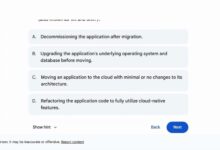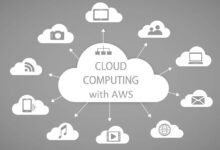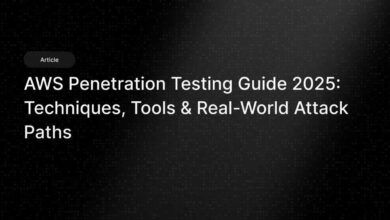AWS Certifications: 7 Ultimate Power-Packed Paths to Skyrocket Your Cloud Career
Kickstarting your journey in the cloud world? AWS certifications are your golden ticket. Backed by Amazon’s industry dominance, these credentials validate your expertise and open doors to high-paying, future-proof tech roles across the globe.
AWS Certifications: The Ultimate Career Accelerator in 2024

AWS certifications have evolved from optional credentials to essential career milestones for IT professionals. With Amazon Web Services controlling over 30% of the global cloud infrastructure market, mastering its ecosystem through official certification is no longer a luxury—it’s a necessity. These credentials signal to employers that you possess validated, hands-on skills in designing, deploying, and managing cloud solutions at scale.
Why AWS Dominates the Cloud Certification Landscape
Amazon Web Services launched its certification program in 2013, but it wasn’t until the mid-2010s that it gained serious traction. Today, AWS certifications are recognized by Gartner, Forrester, and LinkedIn as among the most in-demand tech credentials. According to the 2023 Global Knowledge IT Skills and Salary Report, AWS Certified Solutions Architects and DevOps Engineers rank in the top five highest-paid IT professionals worldwide.
- AWS holds a 32% share of the global cloud market (Synergy Research Group, 2024).
- Over 1 million AWS certifications have been earned globally since the program’s inception.
- Certified professionals report an average salary increase of 22% post-certification.
The credibility of AWS certifications stems from their rigorous exam structure, real-world scenario-based questions, and alignment with actual cloud deployment practices. Unlike theoretical exams, AWS tests your ability to solve complex problems under time constraints, simulating real operational challenges.
The Business Value of AWS Certifications
For organizations, having AWS-certified employees translates into faster cloud adoption, reduced downtime, and optimized costs. AWS Partner Network (APN) partners are required to have a certain number of certified staff to maintain their status, directly linking certification to business growth. Companies like Netflix, Airbnb, and Capital One rely heavily on AWS-certified teams to maintain their cloud infrastructure.
“Certification isn’t just about passing a test—it’s about proving you can architect resilient, scalable, and secure systems on AWS.” — Sarah Johnson, Principal Solutions Architect at AWS
Moreover, AWS certifications help standardize knowledge across teams. When everyone speaks the same cloud language, collaboration improves, onboarding becomes faster, and misconfigurations decrease. This standardization is especially critical in multi-cloud or hybrid environments where AWS often serves as the primary public cloud platform.
Understanding the AWS Certification Hierarchy
AWS offers a tiered certification path designed to accommodate professionals at every stage of their cloud journey. From beginners with no prior experience to seasoned architects leading enterprise transformations, there’s a certification path tailored to your goals. The hierarchy is structured into four levels: Foundational, Associate, Professional, and Specialty.
Foundational Level: AWS Certified Cloud Practitioner
The AWS Certified Cloud Practitioner is the entry point into the AWS certification ecosystem. It’s designed for individuals who need a broad understanding of AWS Cloud, including core services, billing, security, and compliance. This certification is ideal for non-technical roles like sales, procurement, and management, as well as technical beginners.
- No prerequisites required.
- Exam format: 65 multiple-choice and multiple-response questions.
- Time limit: 90 minutes.
While it doesn’t require hands-on technical skills, passing this exam demonstrates that you understand the value proposition of cloud computing and can engage in informed discussions about AWS services. Many professionals use this as a stepping stone before diving into more technical certifications. You can prepare using the AWS Training and Certification portal, which offers free digital courses.
Associate Level: Building Technical Expertise
The Associate level is where most technical professionals begin their AWS journey. It validates your ability to design, deploy, and operate applications and infrastructure on AWS. There are three Associate-level certifications:
- AWS Certified Solutions Architect – Associate
- AWS Certified Developer – Associate
- AWS Certified SysOps Administrator – Associate
Each targets a different role but shares a common foundation in core AWS services like EC2, S3, VPC, IAM, and RDS. These exams are scenario-based and require practical knowledge. For example, the Solutions Architect exam might ask you to design a highly available web application using Auto Scaling, Elastic Load Balancing, and Route 53.
Preparation typically takes 3–6 months of dedicated study and hands-on practice. Many candidates use platforms like A Cloud Guru or Udemy for structured learning paths.
Professional Level: Mastering Enterprise-Scale Solutions
The Professional level is designed for experienced cloud architects and engineers who design complex, scalable, and secure systems. These certifications are significantly more challenging and require deep, hands-on experience.
- AWS Certified Solutions Architect – Professional
- AWS Certified DevOps Engineer – Professional
These exams test your ability to make architectural trade-offs, optimize costs, and implement advanced security controls. For instance, you might be asked to design a multi-region disaster recovery strategy or integrate AWS with on-premises systems using AWS Direct Connect and VPN.
According to AWS, most candidates have 3–5 years of real-world AWS experience before attempting these exams. The pass rate is estimated to be below 50%, making them some of the most respected credentials in the industry.
Specialty Certifications: Deep Dives into Niche Domains
AWS introduced Specialty certifications to recognize expertise in specific technical areas. These are ideal for professionals who want to stand out in competitive fields.
- AWS Certified Advanced Networking – Specialty
- AWS Certified Security – Specialty
- AWS Certified Machine Learning – Specialty
- AWS Certified Data Analytics – Specialty
- AWS Certified Database – Specialty
- AWS Certified SAP on AWS – Specialty
These exams are highly technical and require deep domain knowledge. For example, the Security – Specialty exam covers advanced topics like encryption strategies, threat detection with Amazon GuardDuty, and compliance frameworks like HIPAA and PCI DSS.
Specialty certifications are often pursued by consultants, architects, or engineers working in regulated industries like finance, healthcare, or government. They demonstrate a level of mastery that general certifications cannot.
Top 7 AWS Certifications to Pursue in 2024
With so many options, choosing the right AWS certification can be overwhelming. Here are the seven most valuable and in-demand AWS certifications in 2024, ranked by career impact, salary potential, and industry demand.
1. AWS Certified Solutions Architect – Associate
This is the most popular AWS certification and often the first technical credential professionals earn. It validates your ability to design distributed systems on AWS, select appropriate services, and implement best practices for security and cost optimization.
aws certifications – Aws certifications menjadi aspek penting yang dibahas di sini.
- Target audience: Cloud architects, developers, and system administrators.
- Key services covered: EC2, S3, RDS, VPC, CloudFormation, Route 53.
- Exam cost: $150.
According to PayScale, professionals with this certification earn an average of $120,000 per year. It’s also a prerequisite for the Professional-level Solutions Architect exam, making it a critical milestone.
2. AWS Certified Developer – Associate
This certification is tailored for software developers who build and deploy applications on AWS. It focuses on AWS services used in application development, such as Lambda, DynamoDB, API Gateway, and CloudFormation.
- Target audience: Full-stack developers, backend engineers, DevOps engineers.
- Key skills: Writing code that interacts with AWS services, deploying serverless applications, debugging cloud-based apps.
- Exam format: Scenario-based multiple-choice and multiple-response questions.
This certification is especially valuable for developers transitioning from on-premises to cloud-native development. It proves you can build scalable, event-driven applications using AWS’s serverless ecosystem.
3. AWS Certified SysOps Administrator – Associate
For IT operations professionals, this certification validates your ability to deploy, manage, and operate workloads on AWS. It’s ideal for system administrators, DevOps engineers, and cloud support specialists.
- Focus areas: Monitoring with CloudWatch, logging, automation, patch management, and incident response.
- Hands-on emphasis: Candidates must understand how to troubleshoot common issues and automate routine tasks.
- Real-world relevance: Covers day-to-day operational tasks like managing IAM policies and optimizing EC2 instances.
This certification is particularly useful for professionals working in MSPs (Managed Service Providers) or internal IT teams responsible for cloud operations.
4. AWS Certified Solutions Architect – Professional
This is one of the most prestigious AWS certifications. It’s designed for architects who design complex, enterprise-grade solutions. The exam tests your ability to make architectural decisions based on cost, performance, reliability, and security.
- Prerequisites: AWS Certified Solutions Architect – Associate is recommended.
- Experience required: 3–5 years of designing and deploying cloud architectures.
- Exam difficulty: High. Questions often involve multi-step reasoning and trade-off analysis.
Holding this certification can lead to roles like Principal Architect, Cloud Consultant, or Cloud Practice Lead. Average salaries exceed $150,000, with some professionals earning over $200,000 in senior roles.
5. AWS Certified DevOps Engineer – Professional
This certification bridges development and operations, focusing on CI/CD pipelines, infrastructure as code, and monitoring. It’s ideal for engineers who automate deployments and manage cloud infrastructure at scale.
- Key tools: AWS CodePipeline, CodeBuild, CodeDeploy, CloudFormation, OpsWorks, and Systems Manager.
- Skills validated: Automating infrastructure, implementing blue/green deployments, and managing configuration drift.
- Industry demand: High, especially in fintech and SaaS companies.
This certification is a strong differentiator in DevOps job markets. Many job postings now list it as a preferred or required qualification.
6. AWS Certified Security – Specialty
As cyber threats grow, cloud security expertise is in high demand. This certification validates your ability to secure AWS workloads, implement encryption, and manage identity and access.
- Covered services: IAM, KMS, CloudTrail, GuardDuty, WAF, and Macie.
- Target audience: Security analysts, compliance officers, cloud security architects.
- Exam rigor: Requires deep understanding of security best practices and regulatory requirements.
Organizations in regulated industries often require this certification for cloud security roles. It’s also a key credential for passing audits and achieving compliance certifications.
7. AWS Certified Machine Learning – Specialty
For data scientists and ML engineers, this certification proves your ability to build, train, and deploy machine learning models on AWS using SageMaker, Rekognition, and other AI services.
- Prerequisites: Strong background in Python, data science, and ML concepts.
- Exam focus: Data preprocessing, model training, hyperparameter tuning, and deployment.
- Real-world application: Ideal for professionals building AI-powered applications.
This certification is still relatively rare, making it a powerful differentiator. AWS reports that ML-certified professionals are among the fastest-growing job categories in the cloud ecosystem.
How to Prepare for AWS Certifications: A Step-by-Step Guide
Passing AWS certifications requires more than just memorizing facts. You need a structured approach that combines learning, hands-on practice, and exam strategy. Here’s a proven roadmap to help you succeed.
Step 1: Choose the Right Certification
Start by aligning your certification goal with your career path. Ask yourself:
- Am I in a technical or non-technical role?
- Do I want to focus on architecture, development, operations, or security?
- What is the job market demanding in my region?
If you’re unsure, begin with the Cloud Practitioner or Solutions Architect – Associate. Both provide a solid foundation for further specialization.
Step 2: Leverage Official AWS Training Resources
AWS offers a wealth of free and paid resources. The AWS Training and Certification website includes digital courses, exam guides, and sample questions. For hands-on labs, consider AWS Skill Builder, which provides interactive learning experiences.
Official AWS Classroom Training is also available for those who prefer instructor-led learning, though it comes at a higher cost.
Step 3: Practice with Real-World Scenarios
Nothing beats hands-on experience. Create an AWS Free Tier account and start building. Try these exercises:
- Deploy a static website using S3 and CloudFront.
- Set up a VPC with public and private subnets.
- Automate EC2 instance deployment using CloudFormation.
- Configure CloudWatch alarms and SNS notifications.
The goal is to internalize how services interact. When you understand the “why” behind configurations, you’ll be better equipped to handle exam scenarios.
aws certifications – Aws certifications menjadi aspek penting yang dibahas di sini.
Step 4: Use Third-Party Practice Exams
Practice exams are critical for gauging your readiness. Platforms like Whizlabs, Tutorials Dojo, and Boson offer high-quality mock tests that mimic the real exam format.
Focus on understanding why answers are correct or incorrect. Review every question, even the ones you got right.
Step 5: Join Study Groups and Communities
Engaging with others can boost motivation and clarify doubts. Join communities like:
- Reddit’s r/AWSCertifications
- AWS Developer Forums
- LinkedIn groups focused on cloud careers
Many professionals share study plans, tips, and even free resources in these communities.
Common Mistakes to Avoid When Pursuing AWS Certifications
Even smart, experienced professionals fail AWS exams due to avoidable mistakes. Here are the most common pitfalls and how to sidestep them.
Mistake 1: Underestimating the Exam Difficulty
Many candidates assume that because they use AWS at work, they’ll pass the exam easily. However, AWS exams test deep conceptual understanding and best practices, not just familiarity. For example, knowing how to launch an EC2 instance isn’t enough—you must understand when to use spot instances vs. reserved instances, how to secure them with security groups, and how to monitor them with CloudWatch.
Solution: Treat the exam like a serious academic challenge. Dedicate 100+ hours of study and practice.
Mistake 2: Relying Solely on Memorization
AWS exams are scenario-based, not trivia. You won’t succeed by memorizing service features. Instead, you must apply knowledge to solve problems.
Solution: Focus on understanding architectural patterns, cost optimization strategies, and security principles. Use the “Well-Architected Framework” as a mental model.
Mistake 3: Skipping Hands-On Practice
No amount of video watching replaces actual experience. If you haven’t built a VPC with NAT gateways or configured IAM roles, you’ll struggle with exam questions.
Solution: Spend at least 40% of your study time in the AWS Console. Break things, fix them, and learn from mistakes.
Mistake 4: Ignoring the Exam Guide
AWS publishes detailed exam guides that outline the domains and weightings. For example, the Solutions Architect – Associate exam allocates 30% of questions to “Design Resilient Architectures” and 26% to “Define Performant Architectures.”
Solution: Use the exam guide to prioritize your study. Don’t spend equal time on all topics—focus on high-weight domains.
The ROI of AWS Certifications: Salary, Jobs, and Career Growth
Investing in AWS certifications pays off—literally. Let’s break down the return on investment in terms of salary, job opportunities, and long-term career advancement.
Salary Premium for AWS-Certified Professionals
Multiple salary surveys confirm that AWS-certified professionals earn significantly more than their non-certified peers.
- AWS Certified Solutions Architect – Associate: Average salary of $120,000 (PayScale, 2024).
- AWS Certified DevOps Engineer – Professional: Average salary of $145,000.
- AWS Certified Security – Specialty: Average salary of $155,000.
In high-cost regions like San Francisco or London, these figures can exceed $180,000. Even entry-level roles with AWS certification requirements often start at $80,000+.
Job Market Demand and Global Opportunities
LinkedIn’s 2024 Jobs on the Rise report lists “Cloud Engineer” and “DevOps Engineer” as two of the fastest-growing roles, with AWS skills consistently in the top required qualifications. Job postings mentioning AWS certifications have increased by 45% year-over-year.
Moreover, AWS certifications are globally recognized. Whether you’re in India, Germany, or Brazil, your credential holds the same weight. This portability makes it easier to work remotely or relocate for better opportunities.
Career Advancement and Leadership Roles
AWS certifications open doors to leadership positions. Many cloud architects, practice managers, and CTOs began their journey with an Associate-level certification. As you progress, you gain the credibility to lead digital transformation projects, mentor junior engineers, and influence technical strategy.
Additionally, AWS certifications enhance your personal brand. Listing them on LinkedIn increases profile views and recruiter outreach by up to 60%, according to LinkedIn data.
aws certifications – Aws certifications menjadi aspek penting yang dibahas di sini.
Future Trends in AWS Certifications and Cloud Careers
The cloud landscape is evolving rapidly, and AWS certifications are adapting to stay relevant. Here’s what to expect in the coming years.
Increased Focus on AI and Machine Learning
With AWS investing heavily in AI services like Bedrock, SageMaker, and Titan, expect more certifications focused on generative AI and ML engineering. A new “AWS Certified AI Practitioner” certification is rumored for 2025.
Professionals who combine cloud expertise with AI skills will be in high demand for roles in intelligent automation, chatbot development, and predictive analytics.
Expansion of Sustainability Certifications
As organizations prioritize ESG (Environmental, Social, and Governance) goals, AWS is likely to introduce a “Sustainability Architect” certification. This would focus on designing energy-efficient cloud architectures and measuring carbon footprints using tools like the AWS Customer Carbon Footprint Tool.
Early adopters of such certifications will gain a competitive edge in green tech initiatives.
More Role-Based and Industry-Specific Certifications
AWS is moving toward role-based learning paths. We may see new certifications like “AWS Certified Data Engineer” or “AWS Certified Frontend Developer.” Industry-specific credentials for healthcare, finance, and government are also on the horizon.
This trend will make certifications more targeted and valuable for niche markets.
What is the easiest AWS certification to start with?
The AWS Certified Cloud Practitioner is the easiest and most beginner-friendly certification. It requires no technical background and covers fundamental cloud concepts, making it ideal for non-technical professionals or those new to AWS.
How long does it take to prepare for an AWS certification?
Preparation time varies by certification and experience. For the Cloud Practitioner, 4–6 weeks of part-time study is typical. Associate-level exams usually require 3–6 months of dedicated study and hands-on practice, especially for those without prior AWS experience.
Are AWS certifications worth it in 2024?
Yes, AWS certifications are highly valuable in 2024. They boost earning potential, increase job opportunities, and validate your expertise in a competitive market. With AWS maintaining its cloud leadership, these credentials remain a smart career investment.
Can I get an AWS job without certification?
Yes, it’s possible to get an AWS-related job without certification, especially if you have strong hands-on experience. However, certification significantly improves your chances, helps you stand out in job applications, and often leads to higher starting salaries.
How much does an AWS certification cost?
Most AWS certification exams cost $150 for Associate and Foundational levels. Professional-level exams are $300, and Specialty exams are also $300. Retakes are full price, so thorough preparation is essential to avoid extra costs.
AWS certifications are more than just badges—they’re career catalysts. Whether you’re starting out or aiming for a leadership role, earning an AWS certification demonstrates commitment, expertise, and readiness to tackle modern cloud challenges. With the right strategy, preparation, and mindset, you can leverage these credentials to unlock new opportunities, increase your income, and future-proof your career in the ever-evolving world of cloud computing.
aws certifications – Aws certifications menjadi aspek penting yang dibahas di sini.
Further Reading:









